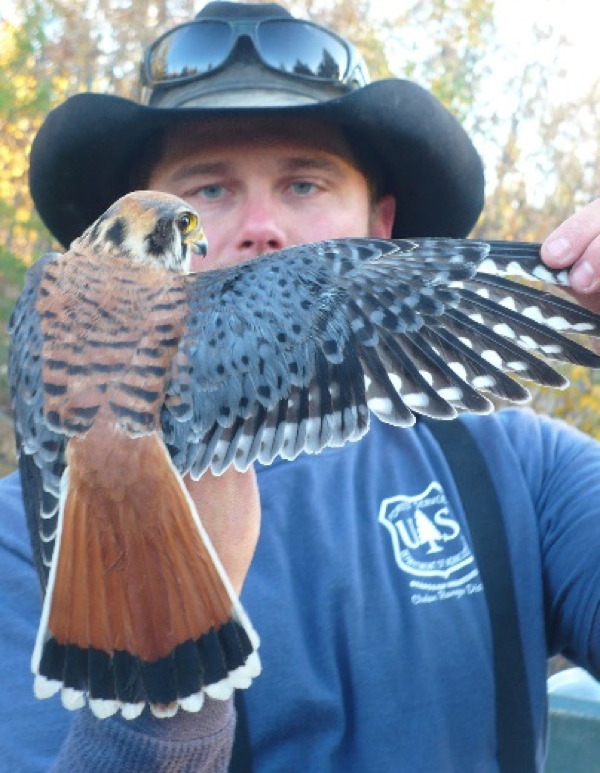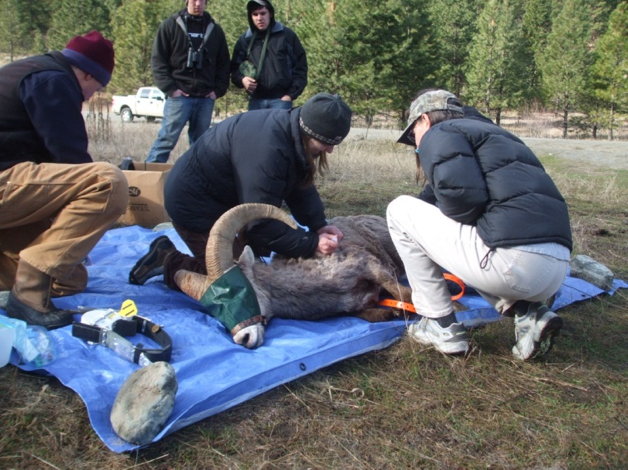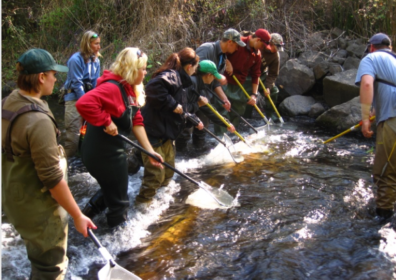- WSU’s unique captive wildlife research and teaching facilities featuring grizzly bears, deer, bighorn sheep, endangered rabbits and amphibians .
- Field trips, internships, and undergraduate research projects with free-ranging wildlife such as large carnivores, ungulates, small mammals, amphibians, and upland game birds.
- Large carnivore management and conservation
- Behavioral ecology, reproduction, and nutrition of wildlife
- Habitat restoration and conservation of endangered species
- Forest, grassland, and wetland habitat management




Expand your interest in wildlife and conservation with field trips, lectures/seminars, scientific demonstrations and restoration activities by joining the Wildlife Society.

Learn the fundamental concepts of wildlife ecology and conservation science through course work and hands-on experience.

Gain hands-on experience through field trips, field camps, internships and research.
Your Course of Study
- University general education requirements (UCORE)
- Basic biology, chemistry, math & statistics classes
- Earth and Environmental Science integrated common core classes
- SOE 300 Natural Resources Ecology OR BIOL 372 General Ecology
- Introduction to GIS (SOILS 368)
- SOE 210 Earth History & Evolution OR ENVR_SCI 250 Intro to Earth System Science
- SOE 312 Nat Res & Society OR POL_S 430 The Politics of Natural Resource & Environmental Policy
- SOE 315 Water & Earth OR SOE 460 Watershed Management
4. Wildlife Ecology and Conservation Sciences core classes
- Methods in Wildlife Ecology (SOE 310)
- Wildlife Nutrition (SOE 431)
- Wildlife Ecology (SOE 435)
- Population Ecology (SOE 441)
- Wildlife Habitat Ecology (SOE 446)
- Conservation Biology (SOE 450)
5. Animal Systematics or Wildlife electives
- Wildlife Genetics (SOE 318)
- Biology of Fish (BIOLOGY 412)
- Ornithology (BIOLOGY 423)
- Mammalogy (BIOLOGY 428)
- Biology of Amphibians and Reptiles (BIOLOGY 432)
6. Broadening natural resource classes
- Natural Resource Measurements (SOE 204)
- Forest and Arid Land Plants & Ecosystems (SOE 301&302)
- Natural Resources Policy & Law (SOE 438)
7. Professional electives or minor that match your interests and enhance your career goals.
Wildlife Ecology and Conservation Science majors may elect the Pre-veterinary Option
Expert advisors help you fulfill prerequisites and build the science skills you need to successfully apply to Veterinary School at WSU or elsewhere. Because a pre-veterinary pathway requires extra science courses, we recommend that you begin that option your first year.
Additional Required Pre-Veterinary Courses
- Elementary Organic Chemistry (CHEM 345)
- Biochemistry (MBIOS 303)
- General Genetics (BIOLOGY 301)
- General Physics (PHYSICS 101)
When you have completed your Wildlife Ecology & conservation Sciences major you will be able to:
- Demonstrate understanding of core ecological principles affecting organisms and the ecosystems in which they live.
- Apply basic statistical and quantitative methodology in ecological analysis.
- Independently locate and apply relevant ecological literature to assigned problems.
- Interpret a wide range of scientific literature in animal and community ecology and apply this information to problem-solving analysis, particularly related to the conservation of biological diversity of species, populations, and ecosystems.
- Prepare technical biological reports and ecological analyses with supporting documentation for both scientific and popular audiences.
- Interpret species conservation and resource management conflicts from multiple perspectives.
- Effectively analysis diverse conservation challenges ranging from ecology of individual species to global ecosystems and ecological functions on Earth.
Hands-on Experiences
Our program offers numerous hands-on experiences and course work with wildlife in order to prepare you for a diverse and rewarding career once you graduate.
Your Career Options in Wildlife Ecology and Conservation Science
WSU Wildlife Ecology and Conservation Sciences graduates are ready for careers in private industry, local, state, and federal government and graduate or professional school.
Potential career pathways include:
- Wildlife biologist, manager, or researcher
- Fishery biologist, manager, or researcher
- Conservation biologist or endangered species specialist
- Wildlife refuge manager
- Wildlife officer/game warden
- Veterinarian
- Zookeeper
- Natural resources manager
- Environmental consultant
- Environmental educator
- The major helps you meet the U.S. Office of Personnel’s requirements for wildlife biologist, wildlife refuge manager, general biologist, zoologist, fish biologist, range conservationist, and soil scientist